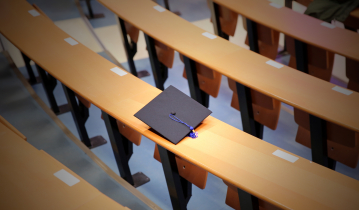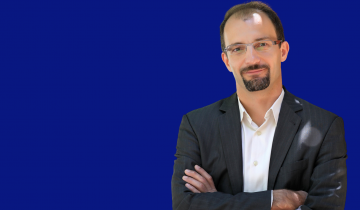Chanwoo KIM will defend his thesis on Monday 08 July at 14:00 (Auditorium 5 and Online)
Title: «Essays in Public, Labor, and Macroeconomics»
Supervisors: Professors Christian HELLWIG and Eugenia GONZALEZ-AGUADO
To attend the conference, please contact the secretariat Christelle Fotso Tatchum
Memberships are:
- Christian HELLWIG : Scientific Director, TSE-R Supervisor
- Ludo VISSCHERS : Professor in Economics, University of Edinburgh Rapporteur
- Sang Yoon LEE : Professor in Economics, Queen Mary University of London Rapporteur
- Fabrice COLLARD : Senior Researcher, CNRS/TSE-R Examinateur
Abstract :
This thesis studies three important economic topics at the intersection of Public, Labor, and Macroeconomics.
In Chapter 1, I study the dynamic taxation of sin goods that lead to addiction and long-term negative health effects. While a canonical model implies that the consumption trend of a rational consumer should be monotone-increasing, empirical studies often find a hump-shaped trend. I show that this discrepancy can be accounted for by introducing a naive consumer who experiences a one-shot unanticipated improvement in the misperception of the health effects. I characterize optimal age-dependent taxes to demonstrate that this naivete provides a novel rationale for imposing a higher sin tax at early ages. Finally, I derive a closed-form optimal age-independent tax, expressing it as a weighted sum of the optimal age-dependent taxes and consumption elasticities for quantification.
In Chapter 2, I analyze recent immigration from Central and Eastern European (CEE) countries to West Germany. I document that the propensity of German establishments to hire these new immigrants is correlated with their previous hiring experiences from the group. However, no such correlation is found in the hiring of native Germans. Based on these findings, I build an equilibrium search model in which each firm privately learns about the productivity of an immigrant group based on matching outcomes with their immigrant employees. While immigrants are discriminated against due to inaccurate beliefs about their group, natives encounter externalities as firms misjudge the productivity of the new workforce. The calibrated model suggests that CEE immigrants, on average, have a higher match quality than native Germans with German establishments. However, negatively biased beliefs persist about the immigrant group despite the learning-by-hiring process. These misperceptions cause a significant wage gap due to early tenure wage losses for CEE immigrants and diminish the positive impact of immigration on the employment of native Germans.
In Chapter 3, I (with a co-author) examine the allocation of major seats in public higher education institutions in France. The choice of college major significantly shapes the labor market outcomes of post-graduates. We aim to study whether publicly-funded higher education institutions adapt major seat allocations in response to changes in youth labor market outcomes. Using detailed data on each program offered to high school graduates from a new online application platform, we find that changes in available seats across majors exhibit minor fluctuations over the last six years. We discuss promising future research to examine how much the current major seat allocation deviates from the socially optimal allocation and how it will reshape the differential returns to majors and improve youth labor market outcomes.



